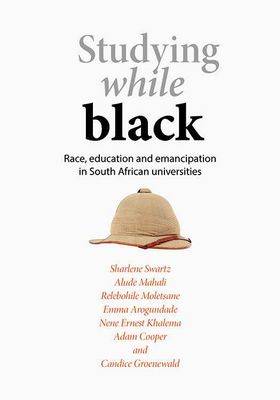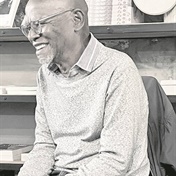
Between 2013 and 2017, a team of researchers from the Human Sciences Research Council undertook a comprehensive study which tracked eighty students from eight universities in South Africa and documented their experiences at the institutes of higher learning. In this edited extract from Studying While Black, a deeper analysis is given into challenges that black students have faced.
It is common knowledge that students, staff and the government are all embroiled in a struggle to transform South Africa’s institutions of higher education, and that these struggles are simultaneously historical and contemporary, practical and ideological.
This study asked “who succeeds, and who does not?” in universities and was therefore intentionally student-centred.
Our research was part of a larger study on education and emancipation that analysed the progress made in the implementation of the recommendations of the Soudien report; media representations of students and higher education institutions; and the identities and competencies of students entering universities in South Africa.
After selecting a small cohort of students from eight diverse universities across South Africa, we tracked the students’ journeys through university (and sometimes out of it), asking what obstacles the students encountered, and what they, along with their institutions, were doing in response.
Studying While Black: Race, education and emancipation in South African universities is available at Loot for R222.
Published by: HSRC Press
Co-authored by: Emma Arogundade, Adam Cooper, Candice Groenewald, Ernest Nene Khalema, Alude Mahali, Relebohile Moletsane, Sharlene Swartz
After our first year of data collection in 2013, we knew this study would reveal complicated answers and rich data.
As a team of eight researchers, each responsible for an individual university selected for this study, we heard stories of:
• “Accidental registration” – of students choosing shorter queues while registering because of problems with getting home after registration, choosing a course not suited for them because the student did not know better, or registering by mistake online for an incorrect course, or having a course assigned to them by a harassed administrator, or the ongoing effects of late registration and missing orientation;
• The support and pressure of family members, who tried to influence choices, despite not having any experience of university life, and so left young people to flounder, but who, in some cases, were extremely supportive financially and emotionally;
• The role of faith and church communities in inspiring and motivating students to study, and who also helped out materially on occasions;
• “Drowning in freedom” and learning responsibility for the first time, including managing time, money, friends, “heartbreak”, and balancing work and play;
• Dealing with academic failure and learning how to continue despite it;
• How extracurricular activities – including political involvement – both contribute to success and detract from it;
• Systems of patronage that exist between students and student representative council members, administrators and lecturers (including transactional sex);
• Accounts of feeling excluded by language, racism and sexism; being made to feel inferior and unwelcome because of the institutional culture, not “knowing the system” and being afraid to ask for help;
• Previously registered students who had dropped out, or taken a “stopgap” before returning to the system, and that were seldom captured by official statistics of throughput;
• Mental health problems, such as feeling like a failure, struggling with sexual identity, and not knowing where to go for help with depression, suicidal ideation, bereavement, addiction, fear about HIV infection, anxiety, stress and the trauma of experiencing gender-based violence;
• Financial insecurity, emanating from not knowing where funds were going to come from to pay for accommodation and food; eating Morvite (porridge) and baked beans for weeks on end, “squatting”, waiting for payments from the National Student Financial Aid Scheme and receiving little support from university administrators in their plight;
• Physical insecurity, especially among female students—about working late on campus and then having to take public transport home in the dark, hitching rides to and from university and not having a safe place to sleep;
• Being completely unprepared for the volume of work, the rapidity with which it was expected to be completed, and having little experience with technology and limited access to computers, which are now a required tool of trade;
• The importance of the way the students’ schools (and in particular extraordinary teachers) prepared them for university (or failed to), and students’ ongoing engagement with their previous schools as a way to “give back”;
• A debilitating sense of personal responsibility for success and self-blame for failure, along with the pressure of feeling that families and communities were depending on them to graduate as first generation university students;
• Some students who sailed straight through university and are now completing honours degrees or internships, or thriving in new jobs.
South African scholarship on women’s experiences in higher education institutions points to the lack of recognition young female students give to gender in their everyday university realities.
Gender
Moorosi and Moletsane (2009) narrate how young women in the sciences at the University of KwaZulu-Natal did not identify gender as significant in their academic experiences, articulating that the university space is not hostile to women.
However, on deeper probing, some of these young women revealed the multiple ways in which gender affects their lives at universities.
Some of these experiences included gendered treatment by male students, such as the downplaying of women’s ability to succeed in specialised science programmes, sexual advances used by male students in exchange for academic assistance (not requested by female students), and the targeting of first-year female students for sex.
Our study’s findings, however, advance the knowledge about gendered experiences of South African universities by examining how sexual orientation, gender expression and gender identity influence students in university and beyond.
Understanding how gender differences operate at university and in society requires us to ask how males and females experience life similarly and/or differently.
In this chapter, we describe how students understand gender as an influencer of success and/or failure at university.
In particular, we highlight how male and female students’ levels of confidence affect their perceptions of success and/or failure at university campuses around the country.
In this chapter, we start by unpacking notions of patriarchy, its meanings and how patriarchy is exemplified at university through who leads and who is represented.
Gendered socialisation
Next, we discuss gendered socialisation, that is, the subtle ways in which men and women are differently socialised in the South African context.
We then outline our findings on the varied perspectives students have about how issues of gender are being addressed on campus, in particular the way policy often does not translate into practice.
We note a critical finding in which participants shared about the impact of toxic masculinities, aggressive males and sexual exploitation to which young female students often fall victim.
In conclusion, our findings point to an interplay between sexuality as an interpersonal and familial struggle that can confine both women and LGBTQI students in a space where they are silenced and isolated both in learning environments on campus and in their homes.
Being aware and knowledgeable of the range of potential gender and sexual identities will promote open, accepting and academically supportive environments necessary for all students to thrive.
A 45-minute documentary, Ready or Not! Black Students’ Experiences of South African Universities, a production of the council accompanies the book. Watch it here:




 Publications
Publications
 Partners
Partners










